Mount Kawi, located in East Java, Indonesia, is known as a sacred pilgrimage site where visitors seek blessings for prosperity and success. The mountain is home to a revered shrine, attracting thousands of spiritual seekers and entrepreneurs who believe in its mystical powers.
Mount Kawi: A Spiritual Journey for Wealth and Prosperity
The Mystical Reputation of Mount Kawi
Mount Kawi is famous for its spiritual energy and is believed to bring fortune and success to those who visit with sincere intentions. Many people, including business owners and traders, make the pilgrimage in hopes of receiving blessings for financial growth. The site has gained a reputation as a place where prayers for wealth and good luck are often granted. One of the most fascinating aspects of Mount Kawi is the harmonious blend of Javanese and Chinese spiritual practices. Many visitors of Chinese descent consider Pesarean Gunung Kawi an important site for prosperity rituals.
The Tomb of Kanjeng Kyai Zakaria II
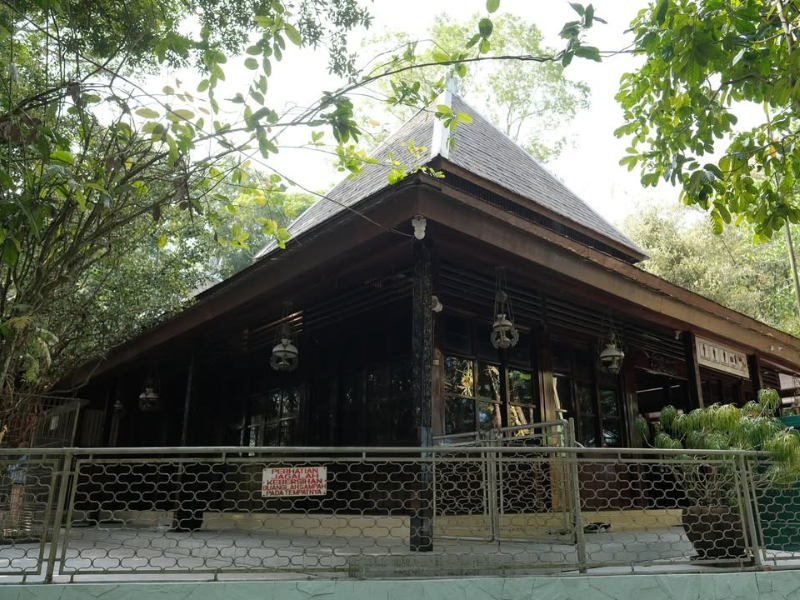
At the Pesarean Mount Kawi (Pesarean Gunung Kawi), spiritual significance lies the tomb of Kanjeng Kyai Zakaria II (Eyang Djugo), a revered Javanese figure believed to possess divine energy. His resting place has become a focal point for pilgrims who come to seek blessings, protection, and guidance. The site is often filled with visitors praying and making offerings, hoping for prosperity and personal fulfillment. Many believe that Zakaria II continues to watch over those who sincerely ask for his help. The rituals performed at the tomb include lighting candles, offering flowers, and meditating. There is a rules at Pendopo Area at Pesarean Gunung Kawi, to maintain the sanctity of the pilgrimage site, visitors must follow specific rules when entering the Pendopo area, photography and video recording are prohibited, wearing short pants or skirts is not allowed,Women who are menstruating are not permitted to enter the Pendopo.
Sacred Rituals and Offerings
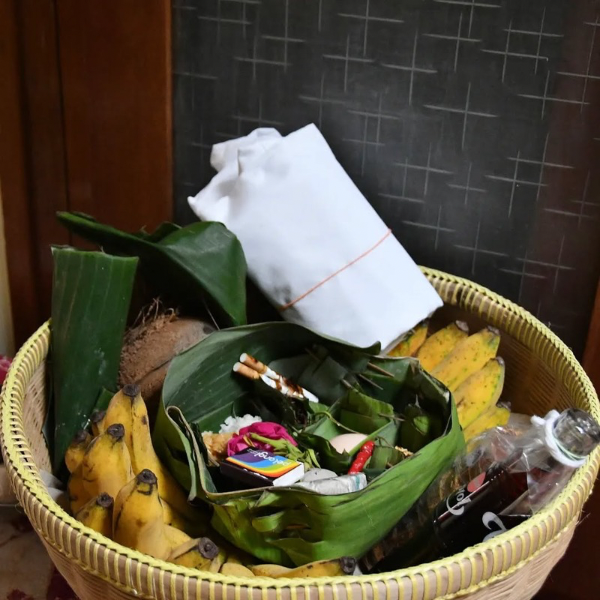
Visitors participate in traditional Javanese rituals, including lighting incense, placing flower offerings, and reciting prayers. Some also bring symbolic items, such as money or gold, to strengthen their connection to the spiritual energy of the site. These rituals are deeply rooted in Indonesian culture and are believed to bring positive energy into one’s life.
The Sacred Spring at Klenteng Dewi Kwan Im
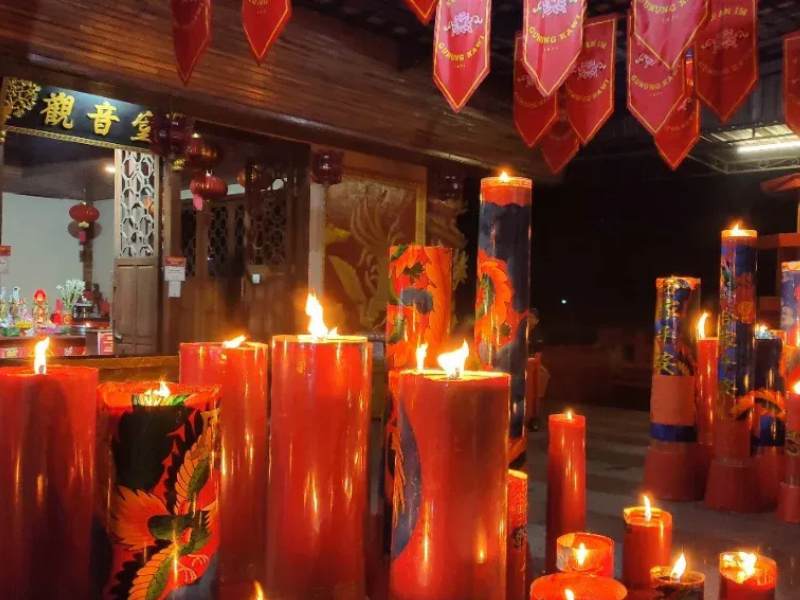
One of the most spiritually significant spots is the sacred spring located at Klenteng Dewi Kwan Im in Pesarean Gunung Kawi. Deeply rooted in Chinese spiritual beliefs, this spring is seen as a symbol of purity, holiness, and eternal life. The water is often used in religious ceremonies to cleanse oneself and attract blessings. Many Chinese-Indonesian visitors come to this site to perform purification rituals and seek good fortune, believing that the water carries divine energy that can enhance prosperity. Pesarean Gunung Kawi itself is widely known as a sacred place for those praying for wealth and success.
The Influence of Chinese and Javanese Spirituality
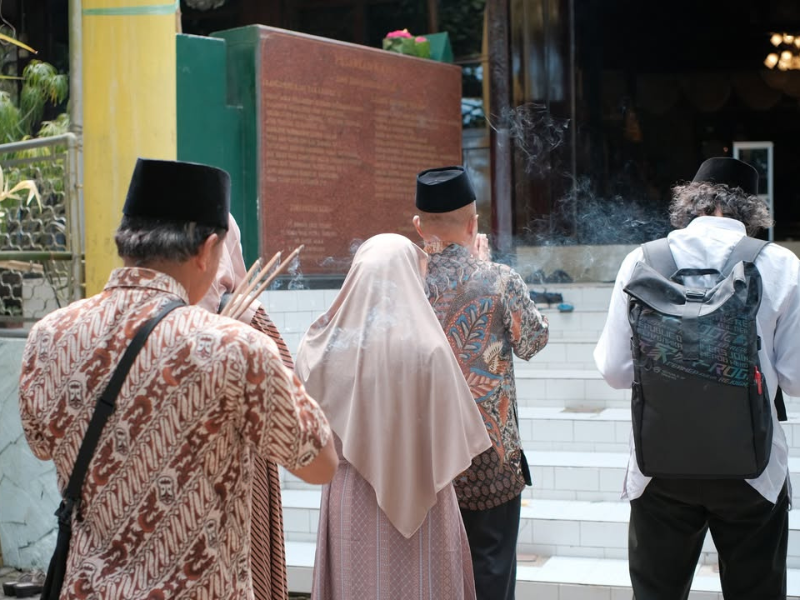
Mount Kawi is unique in the way it blends Javanese mysticism with Chinese spiritual traditions. Throughout the pilgrimage site, visitors will notice influences from both cultures, including Chinese-style altars, red lanterns, and statues of deities believed to bring prosperity. Many Chinese-Indonesians visit Mount Kawi to perform traditional rituals and seek guidance from both Javanese and Chinese spiritual figures. This fusion of traditions highlights Indonesia’s rich cultural diversity and makes Mount Kawi a welcoming place for people from different backgrounds.
A Destination for Spiritual Tourism
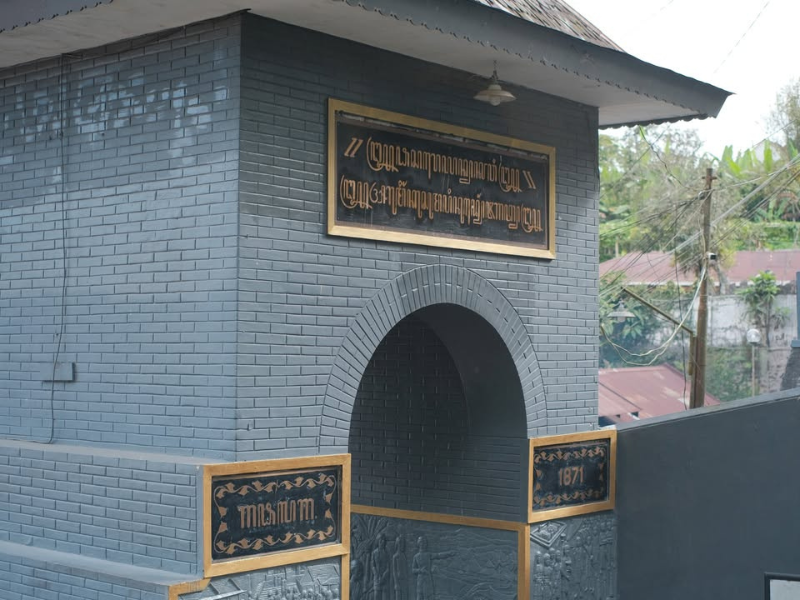
Beyond its religious significance, Mount Kawi has become a well-known destination for spiritual tourism. Many visitors not only seek blessings but also enjoy the peaceful atmosphere and scenic beauty of the area. The pilgrimage experience offers a combination of cultural exploration, spiritual reflection, and a chance to reconnect with nature.



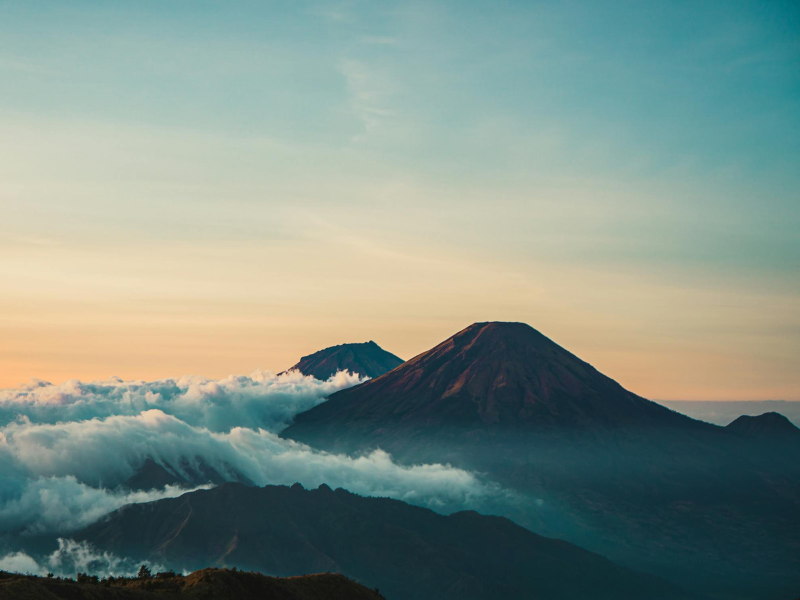
 Alicia Putri
Alicia Putri
 Feb 14, 2025
Feb 14, 2025